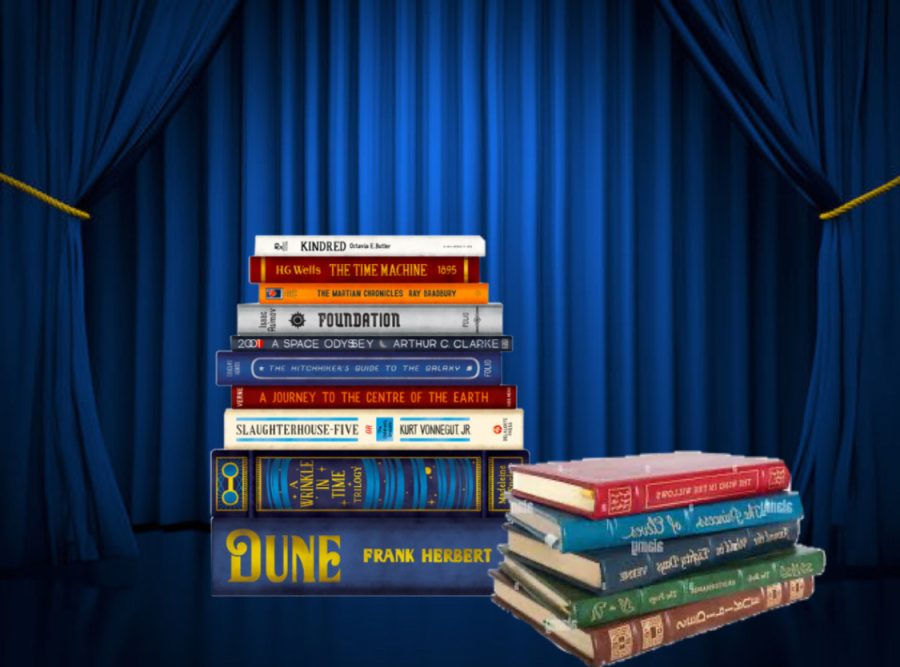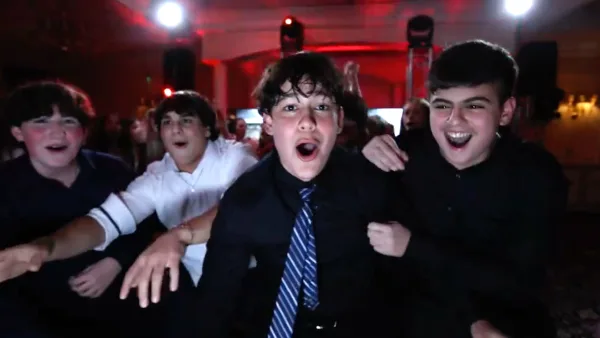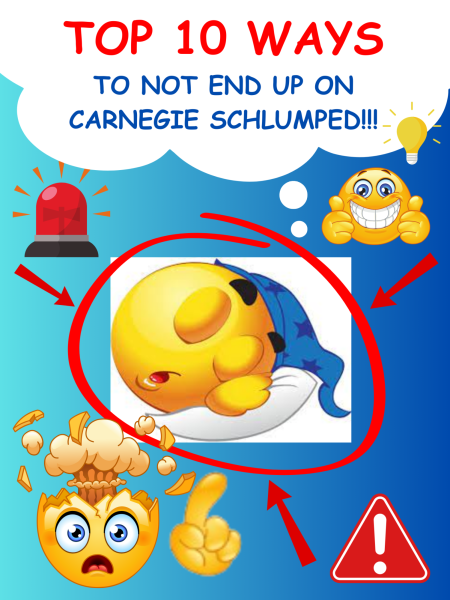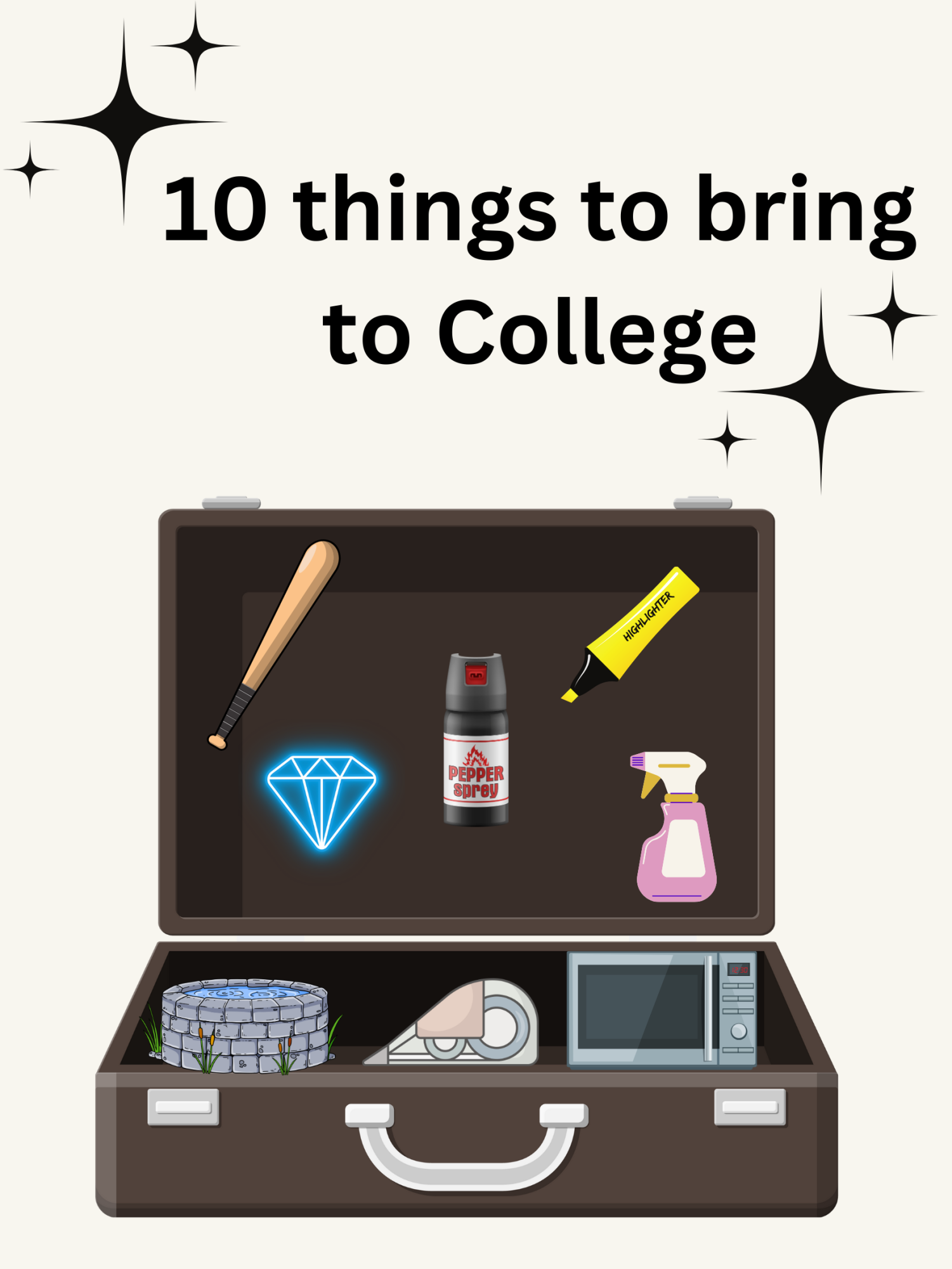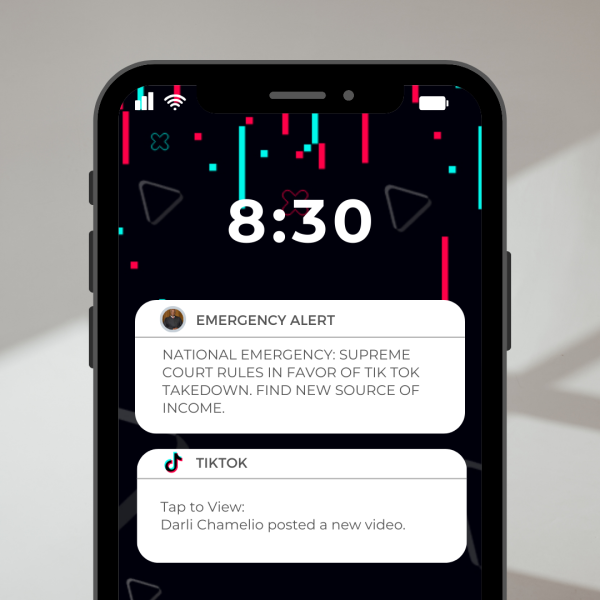New CVHS bill mandating no thought be put into literary analysis is met with no criticism
A stack of the multiple books which are often read in English class in front of blue curtains.
As a result of the CVHS Student Uprising of 2025, many new and innovative policies have been instated, yet none have changed the social climate of CVHS’s English classes more than the “Blue Curtains” Bill. The bill, which mandated that no thought whatsoever should ever be required when analyzing any sort of literary text, was met with no criticism.
However, there are certain exceptions to the rule included within the bill, which many students have taken advantage of. These exceptions include clause 5E, which states, “If analysis must be done, it can only be performed through the most modern lens possible.” Another one well-discussed by students includes the bill’s final clause, which states, “Analysis can also be performed if I find it funny.” No clarification is provided for who “I” is, or what said “I” might consider “funny.”
In order to clear up confusion about the bill, The Upstream has elected to discuss the reading required by CVHS’s many English classes with students in order to uncover how the bill is being interpreted.
As an example, when one of our reporters asked sophomore Kathryn Hudson her thoughts about “Medea,” which her class was reading, she responded with, “She’s just like me, for real.”
“Medea” tells the tale of a woman who murders her children after her husband leaves her but is truly about rage and the way it can twist our morals. The Upstream agrees with Hudson’s assertion that she just might be like all of us.
Other students had things just as (un)insightful to say. When senior Claire Cottrill was asked about her thoughts on the ever timely “Pride & Prejudice,” she responded, “I don’t know, the unresolved sexual tension that stayed present throughout the book kept me from enjoying it. It’s been a while since I read an enemies-to-lovers book that didn’t end with the main characters banging. Have they tried that? I think they’d have a much better time if they just really went at it.”
Cottrill’s qualm seemed echoed by many students about many books, though no group begged for the sexual tension to just be resolved more so than those who had been interviewed about “The Great Gatsby.” The Upstream received multiple statements of, “he wants him so bad,” and, “there’s only so many times a man can describe another man’s smile in excruciating detail before it becomes gay.”
“I don’t even think the homoerotic subtext present within ‘The Great Gatsby’ is accidental. Don’t you remember the scene where he [Nick] ‘groans’ down an elevator ‘shaft’ with a man (McKee) described as ‘feminine’ and then fasts forward to them both unclothed in Mckee’s bed before fasting forward to a subway car? Even without the sexual implications of that scene, the way Nick describes and acts towards Gatsby would’ve been considered excessive even in the 1920s.
“Personally, I believe this was purposeful on Fitzgerald’s part — not to portray queer people, but to demonize them. One of Nick’s character traits is that he’s a hypocrite. He asserts that everyone is an immoral liar but him, but he lies anyway. His homosexuality, which he hides even within his own personal recount, is likely an extension of this. This would align with what Fitzgerald likely thought of himself, as many historians theorize that he himself was queer in some way as well. Furthermore—” Senior Alecia Moore said, promptly being dragged away by the school’s newly-instated student security right after.
So it goes.
Even some freshmen, who had never experienced English at CVHS without the rule, wished to share their thoughts on some of their reading.
“Young Leo Dicaprio was really hot in the movie. I liked how his shirt fell open as he was monologuing and sobbing about Juliet,” freshman Elizabeth Grant said about Shakespeare’s “Romeo and Juliet.”
…
I only have so much time to write what must be written before they find me.
Ever since CVHS’s adult administration was overthrown in favor of a sophomore-ruled regime, many changes have taken place. I consider none as harmful as the “Blue Curtains” bill.
Personally, I believe there to be worth in examining the things we read more deeply, whether we are creating meanings that may not have originally been there in the first place or not. As times change, so do our values, morals, manners, perceptions and so on. Why can everything else grow, yet the way we read texts must stay the same?
Hermeneutics refers to the branch of knowledge that deals with the way in which we interpret texts. It often concedes that interpretations change and evolve with time — the bible does not mean the same thing to humans now that it did in Ancient Rome. I think that there is worth in applying new meaning to old texts, à la “death of the author.” To stop students from finding their own meanings is to kill their creativity.
Maybe the curtains are just blue. Maybe they’re something deeper than that. It’s each student’s individual job to figure that out for themselves. Why can’t we alloseldsndnjsdnkl;iojp[[[[[j[‘[[i[
This story is satire.
Your donation will support the student journalists of Carnegie Vanguard High School. Your contribution will allow us to cover our annual website hosting costs and fund field trips, competition fees, and equipment. We appreciate your support!

Danielle is a senior, as well as an activist for queer and feminist rights, which often makes its way into her writing. She is a family and friendship-oriented...

